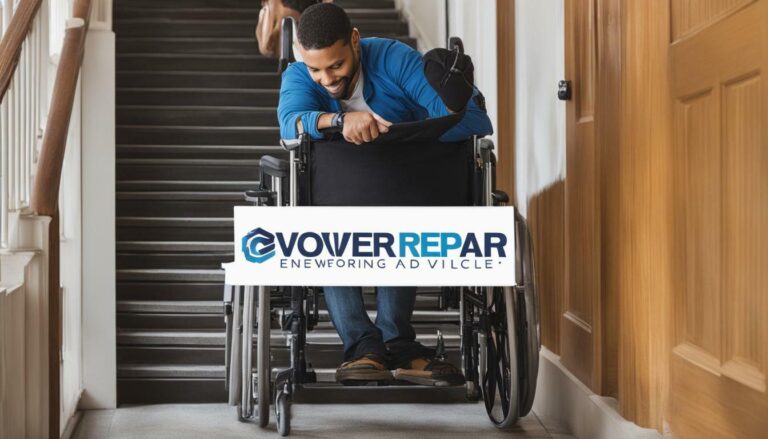Unlock Success: How to Negotiate with Creditors – Expert Guide

Knowing how to negotiate with creditors is crucial for improving your financial standing. Whether you’re facing financial difficulties or looking to reduce interest rates, this expert guide will equip you with the skills and strategies necessary for successful negotiations.
During the Covid-19 pandemic, it’s important to know how to negotiate with creditors and ask for relief. Lenders are often willing to negotiate lower interest rates and develop payment plans to manage debt. Ways to negotiate include lowering interest rates, creating a repayment plan, looking into debt forgiveness, considering loan consolidation, and offering a one-time payment.
Timing and persistence are key to successful negotiations. It’s important to prepare well, keep track of important information, and adjust strategies when negotiating with creditors or debt collectors. Being a storyteller and sharing your unique situation can help with negotiations. It’s also important to stay calm and consult an expert if necessary.
Additionally, it’s important to know your rights under the Fair Debt Collection Practices Act and keep detailed communication notes. Negotiating directly with creditors is beneficial, and it’s important to get all agreements in writing. If negotiating debt becomes too difficult, there are other options such as a Debt Management Plan or debt consolidation to consider.
- Understand the importance of negotiating with creditors for your financial well-being.
- Be prepared, persistent, and adaptable in your negotiation strategies.
- Share your unique situation and be a storyteller to improve your chances of success.
- Stay calm, consult experts if needed, and know your rights under the Fair Debt Collection Practices Act.
- Consider alternative options such as a Debt Management Plan or debt consolidation if negotiations become challenging.
The Importance of Negotiating with Creditors
Understanding the importance of negotiating with creditors is the first step towards taking control of your financial situation. By following the debt negotiation process and implementing effective strategies, you can find solutions that work for both you and your creditors.
🚨 TUIC Errors + Low Credit Score?
CreditScoreIQ helps you build credit faster by reporting utility bills to all 3 bureaus—while you dispute errors.
Start Building Credit Today →During the Covid-19 pandemic, it’s more crucial than ever to know how to negotiate with creditors and ask for relief. Lenders understand the challenging circumstances many individuals are facing and are often willing to negotiate lower interest rates and develop payment plans to help manage debt.

When it comes to negotiating with creditors, there are several approaches you can take. One strategy is to request a lower interest rate, which can significantly reduce the overall cost of your debt. Another option is to work with your creditors to create a repayment plan that fits your financial capabilities. This can involve spreading out payments over a longer period or temporarily reducing monthly payments.
Offering a one-time payment to settle the debt for a reduced amount may also be a viable negotiation tactic. While it may require a lump sum upfront, it can often save you money in the long run.
Effective creditor negotiation strategies
Timing and persistence are key to successful negotiations with creditors. It’s important to prepare well, keep track of important information, and adjust your strategies as needed. One effective approach is to become a storyteller and share your unique situation with the creditor. By explaining the challenges you are facing, you can create empathy and increase the chances of reaching a mutually beneficial agreement.
“By explaining the challenges you are facing, you can create empathy and increase the chances of reaching a mutually beneficial agreement.”
Staying calm and composed throughout the negotiation process is essential. Emotions can sometimes escalate the situation and hinder progress. If negotiations become too overwhelming or complex, consulting with a financial expert or credit counseling agency can provide valuable insights and guidance.
Remember, it’s crucial to know your rights under the Fair Debt Collection Practices Act (FDCPA). Understanding the rules and regulations can help you navigate negotiations with confidence. Additionally, keeping detailed communication notes can help you reference important information and agreements.
Negotiating directly with creditors can be beneficial, as it allows for direct communication and establishes a personal connection. It’s essential to get all agreements in writing to ensure both parties are on the same page.
If negotiating debt becomes too difficult or you require additional support, there are other options to consider. A Debt Management Plan (DMP) can help consolidate your debts and create a more manageable payment arrangement. Debt consolidation is another solution that combines multiple debts into a single loan with a lower interest rate.
By understanding the importance of negotiating with creditors and applying effective strategies, you can work towards resolving debt, improving your financial well-being, and achieving long-term financial stability.
Negotiation Techniques for Lower Interest Rates and Debt Repayment Plans
Lowering interest rates and negotiating debt repayment terms are effective ways to alleviate financial burdens. In this section, we will explore the steps to negotiate with creditors and highlight best practices that will enhance your chances of securing favorable terms.
When negotiating with creditors, it’s important to be well-prepared and organized. Start by gathering all relevant documents, including statements, loan agreements, and any communication with your creditors. Having a clear understanding of your financial situation will give you the confidence you need during negotiations.
Next, it’s crucial to keep track of important information and maintain detailed communication notes. Document all phone conversations, including the date, time, and the person you spoke to. This will help you refer back to previous discussions and ensure that you don’t miss any important details during the negotiation process.
One effective strategy is to share your unique situation as a storyteller. Explain to your creditor the challenges you are facing and the impact it has on your ability to repay the debt. This personal approach can make your situation more relatable and increase the chances of empathy from the creditor. However, it’s essential to remain calm and professional throughout the negotiation process.
Remember, timing is key when negotiating with creditors. Reach out to them as soon as you anticipate difficulties in meeting your financial obligations. Early communication shows your willingness to address the issue responsibly and increases the likelihood of finding a mutually beneficial solution. Persistence is also crucial. If the initial negotiation doesn’t yield favorable results, don’t give up. Explore different angles, consider alternative options, and be open to compromise.
Consulting an expert, such as a credit counselor or a debt negotiation professional, can provide valuable guidance and support during the negotiation process. Their expertise can help you navigate complex financial situations and ensure that you are making informed decisions. Additionally, being aware of your rights under the Fair Debt Collection Practices Act is important. Understanding your rights will protect you from any unfair or illegal practices during the negotiation process.
Throughout the negotiation process, it’s important to get all agreements in writing. This ensures that both parties have a clear understanding of the terms and protects you from any future misunderstandings. Also, consider keeping a copy of all written communication and correspondence with your creditors for future reference.
If negotiating directly with your creditors becomes too challenging or overwhelming, there are alternative options to consider. A Debt Management Plan (DMP) can help you consolidate your debts and create a manageable repayment plan. Debt consolidation is another option that combines multiple debts into a single loan with a lower interest rate.
Summary
When it comes to negotiating with creditors for lower interest rates and debt repayment terms, effective preparation, persistence, and seeking expert advice are key. By gathering the necessary documentation, maintaining detailed communication notes, and sharing your unique situation, you can enhance your chances of securing favorable terms. Remember to stay calm, know your rights, and get all agreements in writing. If negotiations become too difficult, alternatives such as a Debt Management Plan or debt consolidation can offer relief. With the right strategies and approach, you can successfully negotiate with creditors and take control of your financial future.
Table: Essential Steps for Successful Negotiations
| Steps | Description |
|---|---|
| 1. Prepare | Gather relevant documents and understand your financial situation. |
| 2. Communicate | Maintain detailed notes of all communication and share your unique situation as a storyteller. |
| 3. Stay Calm | Remain calm and professional, even in challenging situations. |
| 4. Time it Right | Reach out to creditors early and be persistent in your efforts to negotiate. |
| 5. Seek Expert Advice | Consult a credit counselor or debt negotiation professional for guidance and support. |
| 6. Know Your Rights | Familiarize yourself with the Fair Debt Collection Practices Act and protect your rights. |
| 7. Get it in Writing | Ensure all agreements are documented in writing to avoid future disputes. |
| 8. Explore Alternatives | If negotiations become challenging, consider options like a Debt Management Plan or debt consolidation. |

Negotiating with creditors can be a daunting task, but with the right tips and strategies, you can achieve successful outcomes. In this section, we will provide expert advice on debt settlement negotiations, essential debt negotiation tips, and the importance of consulting an expert to guide you through the process.
When it comes to debt settlement negotiation techniques, it’s important to be well-prepared. Start by gathering all relevant information about your debt, such as outstanding balances, interest rates, and payment history. This will help you build a strong case and demonstrate your commitment to resolving the debt.
One effective strategy is to offer a one-time payment to settle the debt. Creditors may be more willing to negotiate if they know they will receive a lump sum payment rather than waiting for smaller monthly installments. Consider offering a percentage of the total amount owed as a negotiation starting point.
Additionally, during negotiations, don’t be afraid to share your unique situation as a way to connect with the creditor. Being a storyteller and explaining your financial challenges can help humanize your situation and make the creditor more empathetic. However, always remain calm and composed during negotiations. Losing your temper or being confrontational can hinder progress.
| Debt Settlement Tips | Debt Negotiation Tips |
|---|---|
| 1. Prepare well, gather all relevant information about your debt. | 1. Be organized and keep detailed notes of all communication with creditors. |
| 2. Consider offering a one-time payment to settle the debt. | 2. Start negotiations with a lower offer than your ideal settlement amount. |
| 3. Be persistent and follow up regularly. | 3. Be flexible and willing to explore alternative solutions such as debt payment plans. |
| 4. Share your unique situation as a way to connect with the creditor. | 4. Stay calm and composed during negotiations, always remain polite and professional. |
Consulting an Expert
While negotiating with creditors, it’s important to know your rights under the Fair Debt Collection Practices Act (FDCPA). This act provides guidelines on how debt collectors can communicate with consumers and what actions are considered unfair or deceptive.
If negotiations become too challenging or overwhelming, seeking professional assistance can be invaluable. Debt settlement companies or credit counseling agencies can provide expert guidance and negotiate on your behalf. These professionals have extensive knowledge of debt negotiation strategies and can help you navigate complex situations.
Remember, negotiating with creditors is a process that requires time and persistence. Stay focused, be well-prepared, and remain open to different negotiation techniques and alternative solutions. By utilizing expert tips, consulting professionals if needed, and keeping a calm demeanor, you can effectively manage your debt and achieve a positive outcome.

Exploring Alternatives and Concluding Thoughts
If negotiating with creditors becomes too difficult or proves unsuccessful, there are alternative options to consider. In this section, we will explore the benefits of a Debt Management Plan and debt consolidation, providing you with alternatives to help you regain control of your financial situation.
During the Covid-19 pandemic, knowing how to negotiate with creditors and ask for relief is crucial. However, despite your best efforts, you may encounter challenges along the way. If negotiations reach a stalemate or seem impossible, it’s important not to lose hope. There are viable alternatives that can offer you the financial support you need.
A Debt Management Plan (DMP) is one such option. With a DMP, you can work with a credit counseling agency to create a budget and repayment plan tailored to your specific circumstances. The agency will negotiate with your creditors on your behalf, aiming to lower interest rates and consolidate your debts into one manageable monthly payment. This can provide much-needed relief and help you regain control of your finances.
Another alternative to consider is debt consolidation. This involves combining multiple debts, such as credit cards or loans, into a single loan with a lower interest rate. By consolidating your debts, you simplify your repayment process and may even save money in the long run. It’s worth exploring debt consolidation options to determine if they align with your financial goals.
Remember, negotiating with creditors is just one pathway to financial stability. If negotiations prove too challenging, don’t give up. Investigate alternatives like a Debt Management Plan or debt consolidation. These options can provide the relief you need and set you on a path towards regaining control of your financial situation.
FAQ
1. What are some tips for negotiating lower interest rates with creditors?
When negotiating lower interest rates with creditors, it’s important to be prepared and persistent. Here are some tips:
- Research current interest rates and comparable offers
- Highlight your positive payment history
- Explain any financial hardships or changes in circumstances
- Consider using a debt negotiation script or template
2. How can I create a repayment plan with my creditors?
To create a repayment plan with your creditors, follow these steps:
- Assess your financial situation and determine what you can afford to pay
- Contact your creditors and explain your willingness to pay and desire to establish a repayment plan
- Propose a specific payment amount and schedule that works for you
- Request an agreement in writing once the plan is agreed upon
3. How can I explore debt forgiveness options?
If you’re struggling with overwhelming debt, debt forgiveness may be an option. Here’s what you can do:
- Research debt forgiveness programs offered by your creditors or government agencies
- Contact your creditors to inquire about debt forgiveness options
- Provide any necessary supporting documentation to prove your eligibility
- Negotiate with your creditors to reduce or eliminate your debt
4. What is loan consolidation and how can it help?
Loan consolidation involves combining multiple debts into a single loan with a lower interest rate and/or monthly payment. Here’s how it can help:
- Reduce the number of monthly payments you need to manage
- Lower your overall interest rate and potentially save money on interest payments
- Simplify your debt repayment and make it more manageable
- Research and compare loan consolidation options from different lenders
5. Should I offer a one-time payment to my creditors?
Offering a one-time payment to your creditors can help reduce your debt burden. Here’s what you should consider:
- Calculate the maximum amount you can afford to offer as a one-time payment
- Contact your creditors to propose the one-time payment and negotiate a reduced debt amount
- Ensure to get any agreements in writing to avoid future disputes
- If you cannot afford a lump sum payment, explore alternative negotiation options
6. How can storytelling help with negotiations?
Sharing your unique situation and personal story with creditors can help humanize your situation and increase the likelihood of favorable negotiations. Consider discussing:
- How the Covid-19 pandemic has affected your income and financial stability
- Any hardships or challenges you’ve faced that have impacted your ability to repay debts
- Your commitment to finding a resolution and your willingness to collaborate with creditors
- Be truthful and provide any supporting documentation when necessary
7. What should I do if negotiations become difficult?
If negotiations become difficult or overwhelming, consider seeking assistance from a debt negotiation expert. Here’s what you can do:
- Consult with a credit counselor or financial advisor experienced in debt negotiation
- Share your situation and seek their advice on how to navigate the negotiation process
- Be prepared to pay a fee for their services, as debt negotiation experts may charge for their assistance
- Stay calm and patient throughout the process, and remember to advocate for your rights
8. What are my rights under the Fair Debt Collection Practices Act?
The Fair Debt Collection Practices Act (FDCPA) provides consumer protection against unfair debt collection practices. Here are some key rights:
- The right to request verification of the debt
- The right to dispute the debt if you believe it is inaccurate or if you don’t owe it
- The right to be free from harassment or abusive behavior from debt collectors
- The right to request that debt collectors cease communication with you
9. How important is it to keep detailed communication notes?
Keeping detailed communication notes during the negotiation process is crucial. Here’s why:
- Helps you keep track of important details, agreements, and promises made by creditors
- Serves as evidence in case of disputes or misunderstandings
- Provides a reference point when following up or escalating issues with creditors
- Helps you stay organized and maintain a clear understanding of your negotiations
10. Should I negotiate directly with creditors?
Negotiating directly with creditors is often beneficial. Here’s why:
- Direct negotiations give you greater control over the terms and conditions of your debt repayment
- You can establish a personal connection and communicate your intentions and challenges directly
- It reduces the risk of miscommunication or information getting lost in translation
- Increases the chances of finding a mutually agreed-upon resolution
11. How important is it to get all agreements in writing?
Getting all agreements with creditors in writing is crucial for your protection. Here’s why:
- Provides a tangible record of the agreed-upon terms and conditions
- Minimizes the risk of misunderstandings or disputes in the future
- Acts as proof of the negotiated agreement, which can be referred to if needed
- Protects your rights and ensures that both parties are on the same page
12. What are some alternatives to negotiating directly with creditors?
If negotiating directly with creditors becomes too difficult, there are alternatives to consider. Here are two options:
- Debt Management Plan: Enroll in a Debt Management Plan through a credit counseling agency. They will work as an intermediary between you and your creditors to create a repayment plan.
- Debt Consolidation: Consider consolidating your debts into a single loan with a lower interest rate. This simplifies repayment but beware of potential risks.
Ready to Improve Your Credit?
Disputing TUIC errors is step one. Step two? Boost your score by reporting utility payments with CreditScoreIQ.
Get Started Now (Only $1 Trial) →3-bureau reporting • $1M identity insurance • Dark web monitoring



